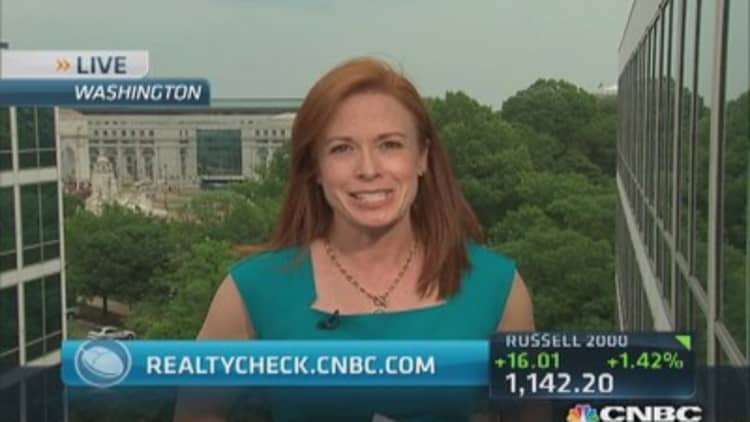
As the housing recovery now moves in fits and still-weak starts, the super-pricey segment is sizzling. Sales of the most expensive 1 percent of homes in the U.S. are up 21 percent this year, according to a report from Redfin, a Seattle-based real estate brokerage. Sales in the remaining 99 percent are down 7.6 percent.
"There are haves and have nots, and the haves are the ones out buying," Redfin CEO Glenn Kelman said.
Ten local housing markets have seen sales growth above 50 percent this year, not surprisingly the top three in tech-heavy Northern California. Long Island, home to the hoity-toitiest Hamptons homes, has seen sales up 72 percent, and Seattle and Miami aren't far behind.
"The stock market had a record year and now it's begun to plateau, and so you see people moving their money out of the equity market and into the housing market," said Kelman.
Read More Housing starts surge, yes, but mostly for apartments
Compare this growth to the rest of the market, the other 99 percent, and the divergence between haves and have-nots is striking. Sales of the top 1 percent in San Jose are up 91 percent, while in the rest of the market sales are down over 7 percent. Even in the boom-to-bust markets that saw the biggest fall during the housing crash, the disparity is wide. Sales of Phoenix's priciest homes are up 24 percent, while the rest of the market is down nearly 16 percent.
"The volatility that you now see in the housing market, where prices go up and down, sales volume goes up and down, that really freaks the middle class out," added Kelman.
As the housing recovery plods on, it is becoming ever more local. A widely followed monthly price report from S&P/Case Shiller released Tuesday showed values still up over 12 percent annually in the nation's 20 largest housing markets. Those gains, however, are coming down in some markets, like Las Vegas and Los Angeles, while other markets, like Denver and Dallas, are hitting new post-crash highs.
Read MoreDrop in rates spurs mortgage refinances
The trouble in the middle of the market is that credit and wages are not expanding, so there isn't enough income to drive more price gains overall.
"People can't afford to buy houses once they've gone up 10-15 percent, and so they're stepping back, but you still have some fairly wealthy folks who are stepping in," concluded Kelman.
—By CNBC's Diana Olick


